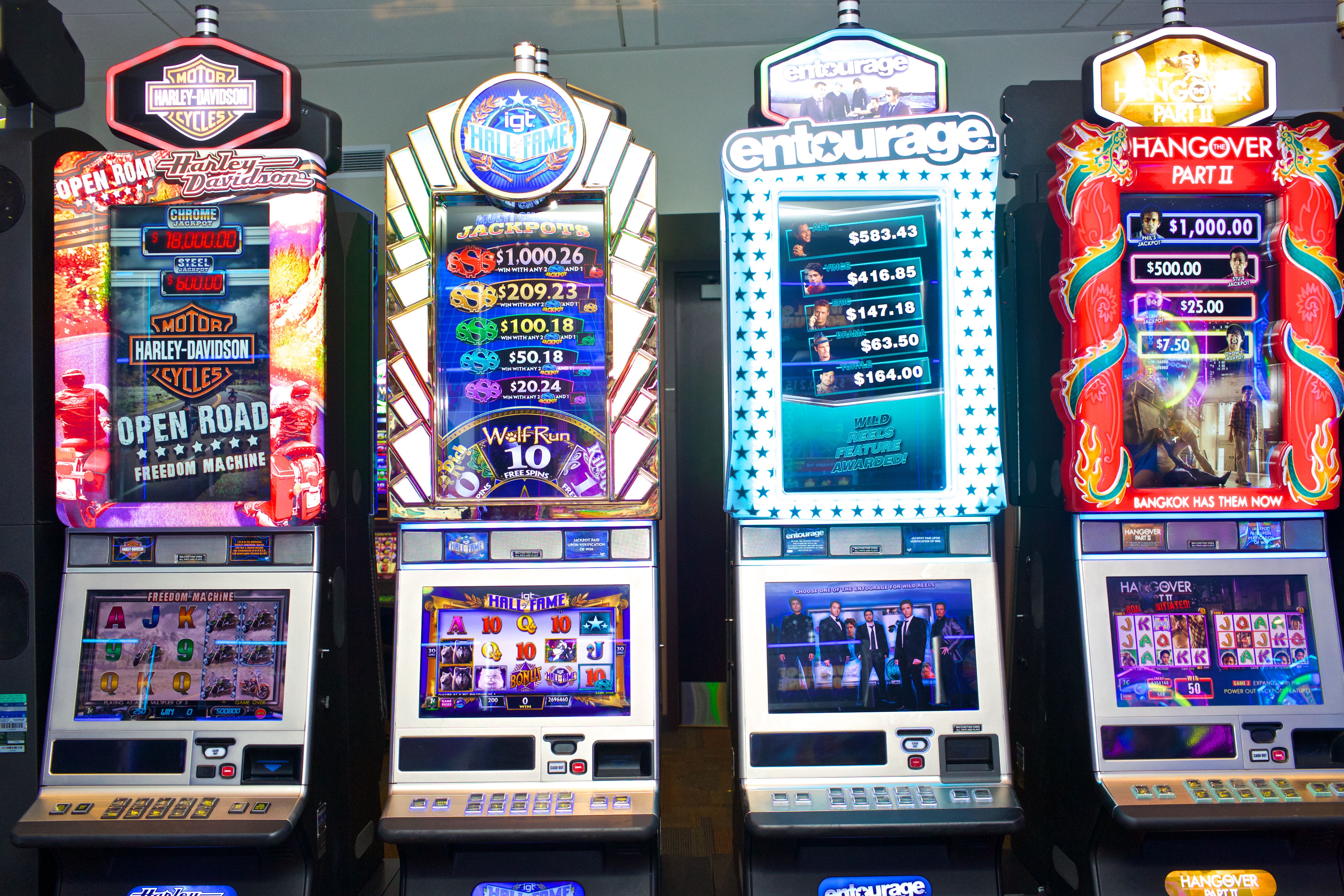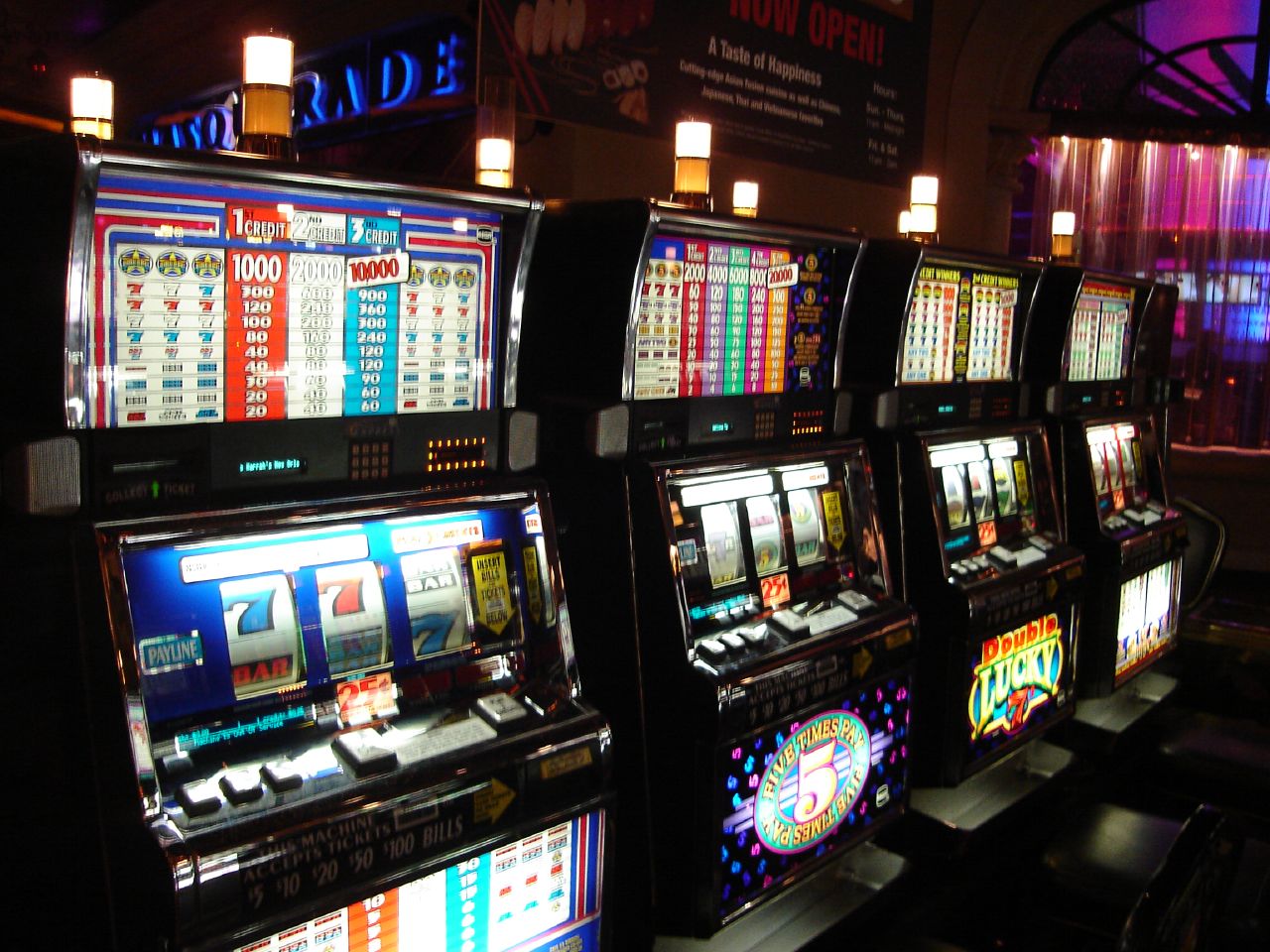Washington Indian Casinos. Washington State has 35 Indian casinos owned by 25 tribes. (Source: National Indian Gaming Commission) Washinton's Indian casinos are located across 15 counties. Snohomish County has the most tribal casinos with five. It is followed by King County with four.

- From the outset of Gaming Compact negotiations between the State of Washington and the Tribes, the two sides could not agree as to whether slot machines and other machine games were legal in Washington, and therefore a subject of negotiation under IGRA. The Tribes argued that failure to negotiate for machines was an act of bad faith by the state.
- To find a loose slot machine at a casino, start by trying machines that are in high-traffic areas, since these tend to have better payouts. Next, check the payout percentage of the machine you’re playing on, either in the help menu or online, because a higher percentage means a higher likelihood you’ll win.
Established in 1973 after a number of costly and embarrassing scandals involving games of chance, the Washington State Gambling Commission is the second oldest regulatory agency of its kind in the United States. Despite the generally laid-back reputation of the Evergreen State, gambling is a serious business that brings in more than a billion dollars in annual revenue. Unfortunately, it also draws a criminal element that seeks to profit by skirting the law, and this is where the men and women of the WSGC earn their paychecks.
Free Slots Machines In Casinos
To give you an idea of the stakes, here are the Washington State gambling net receipts for 2013:
Florida Casinos With Slot Machines
- Tribal Casinos – $2,225,300,000
- State Lottery – $230,200,000
- Card Rooms – $212,800,000
- Punch Boards/Pull Tabs – $65,500,000
- Horse Racing – $28,000,000
- Bingo – $8,200,000
- Raffles/Fundraising Events – $4,900,000
How the Commission Works

The Governor of Washington State, with approval from the Senate, selects five individuals to serve as commissioners for a term of six years. The members of the commission also appoint a director, and this individual selects a staff. There were 146 staff members as of this writing, with 83 also being law enforcement officers.
The agency is not funded by taxes from the citizens of Washington State. Instead, funds are obtained through regulatory fees paid out by the tribal governments and anyone else seeking a license to offer games of chance.
The commission is responsible for regulating and licensing all legal gambling in the state, with the exception of horse racing and the lottery. Due to an agreement with the Native American tribes of Washington State, the commission also assists in the regulation of any gambling that takes place on tribal land.
Working with law enforcement and tribal authorities, the employees of the commission investigate a wide range of gambling-related offenses. These include the following: fraud, money laundering, animal fights, bookmaking, loansharking, Internet gambling, cheating, theft, and embezzlement.
Much of their work revolves around financial audits, as well as on-site and background investigations. Everyone involved in the gaming industry is subject to a thorough background check, and in 2013 the agency investigated 23,300 new applicants and license holders.
Investigators may also be called upon to go undercover, which is especially useful when investigating complaints from the public against casinos and card rooms. About 500 complaints were investigated during the 2013 fiscal year, and these resulted in the discovery of over 840 violations of the law (with 72 criminal cases being sent to state prosecutors).
Gambling Tax
Casinos In Washington State With Slot Machines For Sale
The state of Washington does not collect a gambling tax, but cities, towns, and counties are free to do so. Many take advantage of this opportunity to boost the local economy, and an estimated $29 million was collected in the 2013 fiscal year. Of this number, card games made up the largest source of tax revenue with $21.3 million, followed by punch boards and pull tabs ($7.2 million), and bingo ($267,592).
Business and occupation taxes also exist for establishments offering various forms of gaming. Anyone with a gambling license is required to pay an annual business and operation tax of 1.5%, and those with a gross income greater than $50,000 are subject to an additional 0.13% tax to help raise funds for problem gambling programs. In total, the B&O taxes generated an additional $5.5 million for Washington State in 2013.
Internet Gambling in Washington State
According to Article II Section 24 of the Washington State constitution, all gambling activities are considered illegal unless they’ve been specifically approved. This means online gambling is prohibited in all forms, from running an Internet casino to wagering money on virtual slots. The crime of online gambling was upgraded in 2006 from a misdemeanor to a felony, which means players could face prison time alongside the people who run the establishments.
The stated reason for such tight restrictions involves the safety of potential players. According to the Washington State Gambling Commission website, online games may be dishonest, and proceeds could end up funding criminal activities. The opportunity for credit card fraud is always present, as well as the risk presented to minors and problem gamblers.
In 2010, the Supreme Court heard a case labeled “Rousso vs. State of Washington.” The plaintiff challenged the legality of the state’s Internet gambling laws, but the Supreme Court upheld the legislation by a vote of 9-0.
Card Games in Washington State
Prior to 1997, the only allowable card games in Washington State were the kind that took place between players (such as poker). While a card room could still charge players for renting a seat, they could not offer games that pitted customers against the house.
That all changed in 1997, when the state legislature approved house-banked games such as blackjack. Under the current laws, a card room can operate up to 15 tables, and the maximum wager is limited to $300.
During the gambling boom of the new millennium, a high of 96 card rooms were in operation throughout the state. This number has fallen in recent years, however, and the latest statistics show that 53 card rooms were in operation by April of 2014.
Tribal Gaming
Casinos In Washington State With Slot Machines Dispense
The Indian Gaming Regulatory Act went into effect throughout the United States in 1988, and this granted Indian tribes the right to build casinos and offer gaming on their lands. The WSGM works alongside the tribes to regulate gaming and certify employees.

This relationship has largely been a harmonious one, although the dispute over tribal machine gaming was a notable exception. For years, state and tribal officials disagreed over which types of machine games were legal. In 1994, a federal court was asked to render a decision on the matter, and three years later they deemed slot machines to be illegal.
As a compromise, tribal lottery machines were created. They look and play similar to slot machines, but the random number generator is replaced by a predetermined pool of winner or losing tickets. Each of the 29 federally recognized tribes in Washington State were allowed 975 machines, although they have the right to negotiate this number much higher by entering into a compact.
The state has an overall limit on these machines that caps out at 27,300, and most times it operates at just under capacity. No matter what the number, however, all machines are checked in the commission's electronic testing lab to verify a fair experience for players.
Casinos In Washington State With Slot Machines Machine
All Company and Commission Profiles: